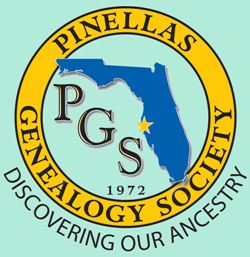Blog

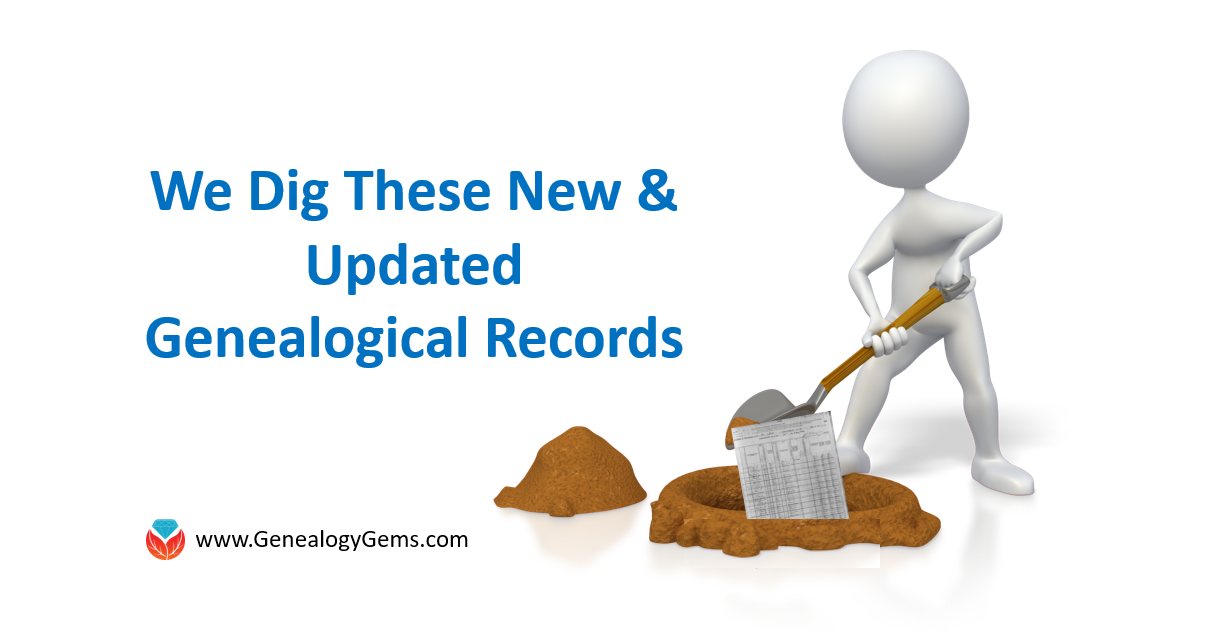
PERSI for Genealogy and More Updated Genealogical Records for a New Year!
With an update to PERSI for genealogy, Pennsylvania birth and death records, and a tidbit or two from the United Kingdom and Scotland, you will start this year off right! It’s a new year and we are ringing in some great new and updated genealogical record collections.
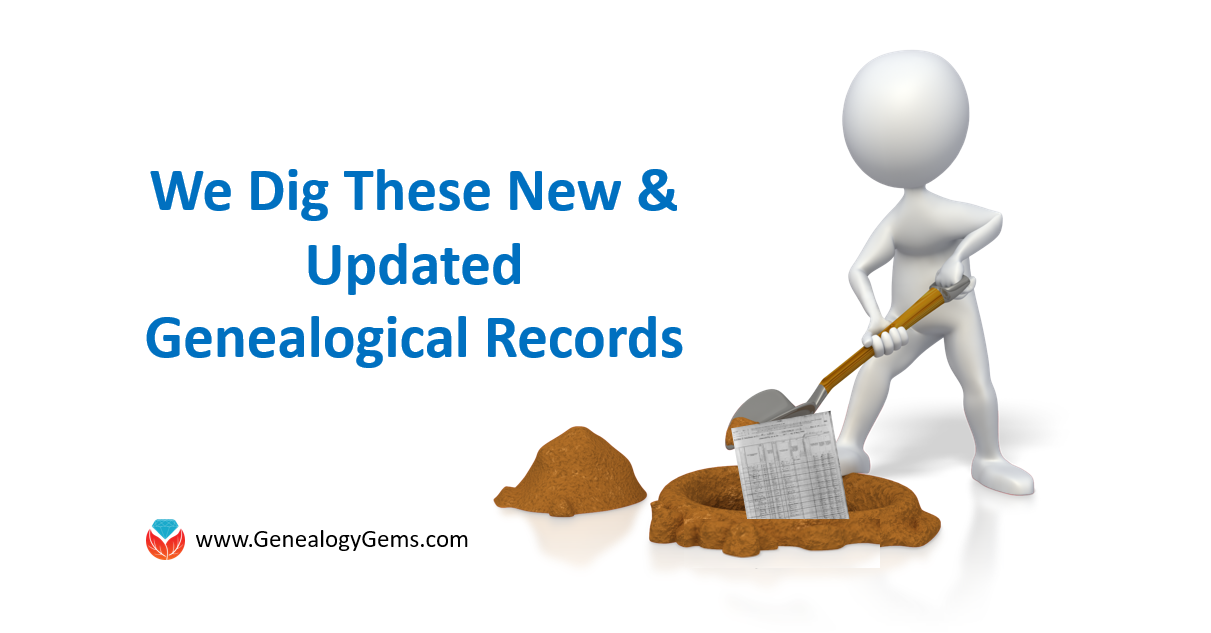
PERSI for Genealogy
A monthly PERSI update has been added at Findmypast. With over 67,000 new articles and five new titles, the Periodical Source Index is the go-to source for those looking for stories of their ancestors. The new titles cover the American Historical Society, Chicago, Maryland, and British family histories & heraldry and will allow you to discover articles, photos, and other material you might not find using traditional search methods.
To fully appreciate PERSI as a genealogical tool, read our previous blog post “PERSI for Genealogy: the Periodical Source Index.” And you’ll find more related articles at the bottom of this article.
Pennsylvania – Birth and Death Records
This week, the Commonwealth of Pennsylvania released the 1911 births (105 years old) and 1966 death records (50 years old) to the public. This makes birth records publicly accessible from 1906 through 1911, and deaths 1906 through 1966. This collection index is free through the Pennsylvania Historical and Museum Commission portal.
Ancestry.com offers these records in digital form as well, but there is a subscription cost to use Ancestry. However, Pennsylvania residents can access these records free of charge through Ancestry.com Pennsylvania.
To access the index only, start with the Pennsylvania Historical and Museum Commission page on Vital Statistics for links to the indexes. You need to know the year of the event and the surname. If you do not know the year, you can search several years, one by one. These indexes are not digitized but are PDF files of the ones the State uses. If you locate a state file number for a certificate, you can order it from the State Archives.
However, if you are a Pennsylvania resident, you will be able to access the certificates digitally using the link to Ancestry.com Pennsylvania as mentioned above.
United Kingdom – Huntingdonshire – Marriages
New at Findmypast this week, the Huntingdonshire Marriages 1754-1837 collection contains over 1,000 names taken from 26 volumes of marriage records from the Huntingdonshire district of Cambridgeshire. These records will allow you to discover when and where your ancestor was married.
Scotland – Roxburghshire – Patient Registers
Also at Findmypast, explore the Roxburghshire, Kelso Dispensary Patient Registers 1777-1781. These registers contain over 1,700 names that list the date and outcome of patients’ treatment (such as cured, relieved of symptoms, or died). This may be particularly helpful for those unable to find a death date.
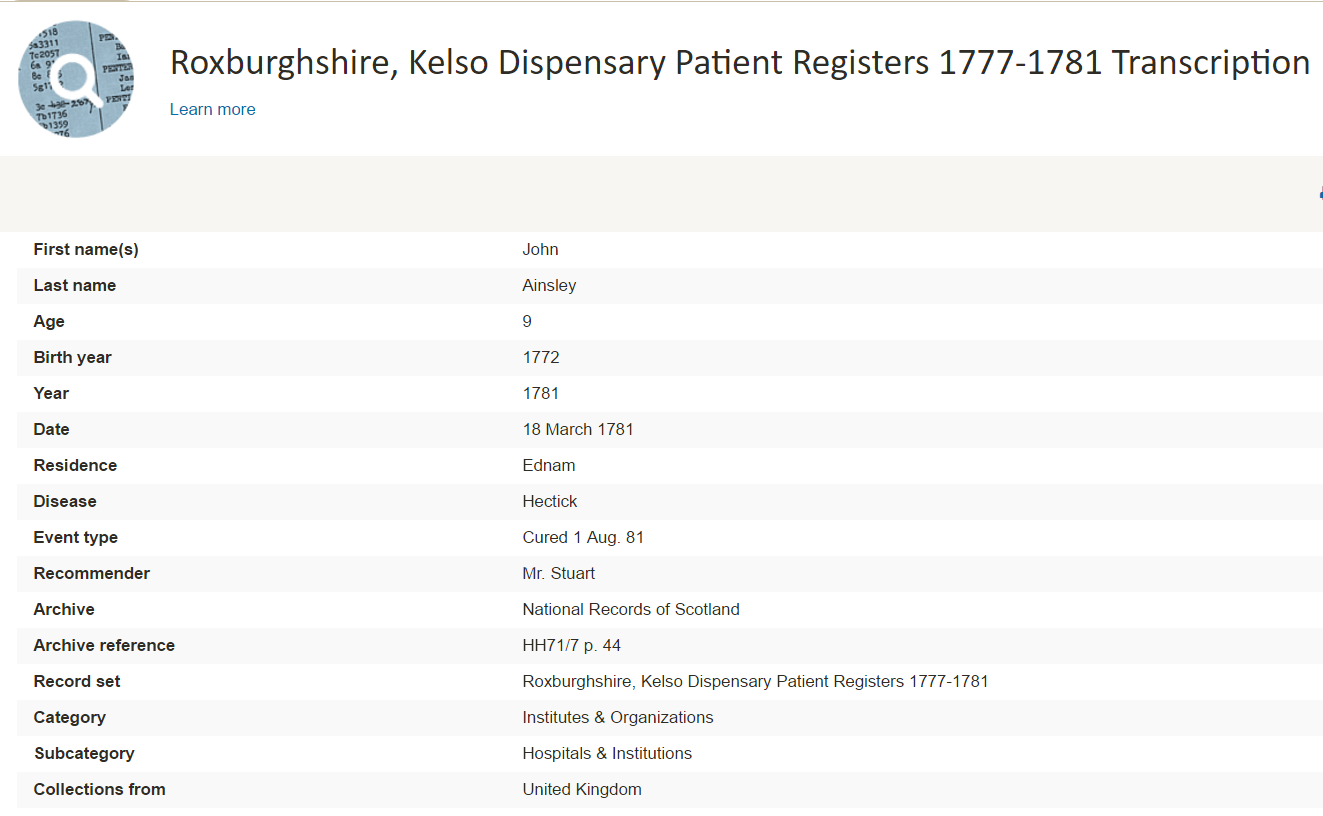
It should be noted that these are transcriptions only and you will not be able to see a digital image of the original.
More PERSI for Genealogy Articles
PERSI Digitized Collections Gaining Ground
New FindMyPast Hints Help Find Records
The Genealogy Gems Podcast Premium Episode 135: Compa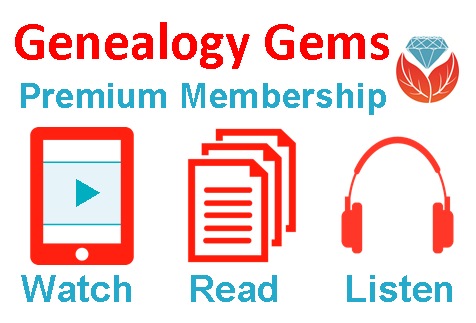 rsion of Google Scholar & PERSI (Premium Member Subscription Needed)
rsion of Google Scholar & PERSI (Premium Member Subscription Needed)

Pinellas Genealogy Society Seminar
Follow me, Lisa Louise Cooke, in 2017 as I share Google research techniques, newspaper research for genealogy, finding living relatives, and much more. I’ll be in Florida in February – here’s the scoop!
The Annual Pinellas Genealogy Society Seminar, co-sponsored by the Largo Public Library, is scheduled for 25 February 2017 at the Largo Public Library from 8 am to 4 pm. The library is located at 120 Central Park Drive, Largo, FL.
 I will be the featured speaker, in addition to three great breakout speakers. My four presentations are:
I will be the featured speaker, in addition to three great breakout speakers. My four presentations are:
1. Google Tools and Procedures for Solving Family History Mysteries
2. Getting the Scoop on Your Ancestors with Newspapers
3. Nine Strategies for Finding Living Relatives
4. Future Technology and Genealogy – 5 Strategies You Need
The topics of the breakout sessions will be (1) “How Do I Organize My Genealogy Records?” by Debbe Hagner, (2) “What’s New at FamilySearch.org with Focus on ‘Memories’” by Debra Fleming, and (3) “English & Welsh Family History: Useful Online Research Resources” by Liz Pearson.
In addition to the speakers, this event boasts a continental breakfast, box lunch, raffles, door prizes, huge book sale, and plenty of time to network with guest organizations and other researchers. The all-inclusive registration fee is $40 for PGS members and $45 for non-members. After 18 February, the cost is $50, so register early.
What: The Annual Pinellas Genealogy Society Seminar co-sponsored by the Largo Public Library
When: Saturday, 25 February 2017, from 8 am to 4 pm
Where: The Largo Public Library at 120 Central Park Drive, Largo, FL.
A detailed schedule of events and a registration form are found at http://www.flpgs.org/NMbrs/seminar/2017/Sem17.aspx . Questions can be addressed to pgsfla@yahoo.com.
My entire lecture schedule for 2017 can be viewed here. I hope to meet with many of you as you pursue genealogy greatness this new year!
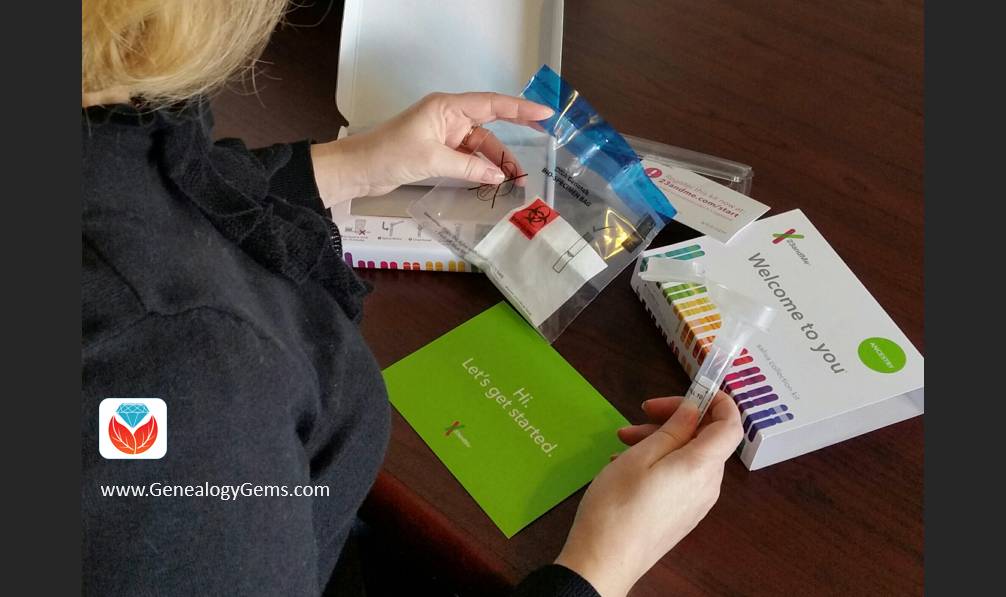
DNA Testing: 3 Tips Before You Ask Your Relatives to Spit
Here’s what you need to know before you encourage your relatives to join you on your genetic genealogy journey. There are a few things to think about before they spit in that tube and our DNA Guide, Diahan Southard, is here to help!

Did you see those holiday price wars on DNA testing over the holidays? I’m guessing we haven’t seen the end of these now that it’s becoming so trendy! Genealogists are seeing the research payoffs of DNA testing and now another major genealogy website (MyHeritage) is offering testing services, as well.
As the prices and sales generally become more attractive, more of you will want to expand your personal genetic database to include aunts, uncles, and cousins. But what is the best way to proceed? How exactly do you ask someone for his or her DNA? You may just have one shot at this. If so, which test? Which company? Here are three tips to consider before spitting into the tube!
Tip One: Test the Eldest Generation First
You likely have a limited amount of funds with which to populate your family genetic database, so you’ll want to use them wisely. Anyone who does not have both parents living should be tested first. Here’s what I suggest:
- ordering an autosomal DNA test for everyone
- ordering a YDNA for one male delegate for each surname you want represented
As for the testing company, you now have four choices:
1. FTDNA
2. 23andMe
3. AncestryDNA
4. MyHeritage
While there are several factors to consider when choosing a company, database size is probably the number one factor. Currently, AncestryDNA has the largest DNA database. The reason this is important is because your DNA will be matched and compared to others who have taken a DNA test. By testing with a company that has done lots of tests, your chance of finding matches goes up tremendously. You can also go to the International Society of Genetic Genealogy’s wiki for a full list of characteristics of each company.
Tip Two: Take Care of Everything for the Person Being Tested
Depending on the needs and interest of your relative, you can handle everything from ordering, payment, to even correspondence. All they have to do is spit or swab! This will often alleviate feelings of trepidation on part of the person being tested, especially if they aren’t really into this genealogy craze in the first place. Here are my recommendations:
If testing at Family Tree DNA: You will need to keep track of the log-in credentials for each relative.
If testing at AncestryDNA: Make sure all kits are registered under your account. The easiest way to do this is to have the family member take a photo of the activation code on the sample collection tube and send it to you so you can register it after you have logged into your Ancestry account. Hint: Register everyone’s DNA test results under the family member who has a subscription to Ancestry!
If testing at MyHeritage: Make sure that all kits are registered under your account. To the best of my knowledge, you order the kit under your account.
If your relative does want to be involved, all the better! You can have them share their Family Tree DNA or 23andMe login with you, or they can share their AncestryDNA results with you. To share their AncestryDNA results with you, visit my website at https://www.yourdnaguide.com/sharing-ancestrydna.
If you haven’t tested with a particular company yourself, familiarize yourself with the sample collection so you can be helpful when they have questions:
- FTDNA: https://www.familytreedna.com/learn/using-the-kit/use-swabs/
- AncestryDNA: https://www.ancestry.com/dna/activationinstructions
- 23andMe: https://customercare.23andme.com/hc/en-us/articles/202904700-Registering-your-kit
- MyHeritage: https://www.myheritage.com/help-center#/path/DNA/DNA-Activation/
Tip Three: Share Your Own Experience
First of all, nothing speaks louder than your own experience. Before asking your relative to take a test, consider starting with a short summary of your own DNA journey. Keep in mind what might interest them – do they like deep history? If yes, you could share the ethnicity results of your own test. Did they have a special connection to Great-grandpa Joe? In this case, you could show how your DNA connected to a 2nd cousin who was also a descendant of Joe. Maybe you could bust out the photo album. Remind them that while Joe is gone, there are threads of DNA that can speak for him and we need as many of his descendants as possible to be tested in order to preserve his genetic legacy and unravel the mystery of his past.
A Few Last Thoughts on DNA Testing
Of course, your family is likely going to have questions; questions that you might not be able to answer. My Autosomal DNA for the Genealogist quick sheet might be just the thing you need to help them understand exactly what this DNA testing thing is all about and to prepare them for the results they are going to receive. You can also send them over to my website, Your DNA Guide, where I have a bit of information for them to look over. As always, anyone can contact me directly and I will answer any and every question they might have. Well, you know, at least questions about genetic genealogy!
Disclosure: This article contains affiliate links and Genealogy Gems will be compensated if you make a purchase after clicking on these links (at no additional cost to you). Thank you for supporting Genealogy Gems!

